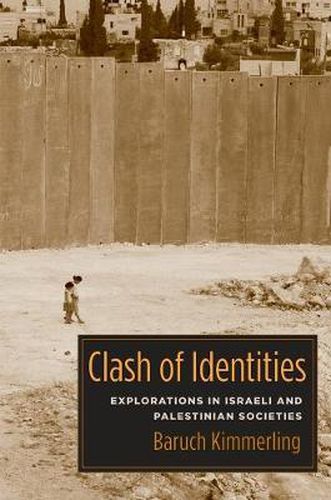Readings Newsletter
Become a Readings Member to make your shopping experience even easier.
Sign in or sign up for free!
You’re not far away from qualifying for FREE standard shipping within Australia
You’ve qualified for FREE standard shipping within Australia
The cart is loading…






By revisiting the past hundred years of shared Palestinian and Jewish-Israeli history, Baruch Kimmerling reveals surprising relations of influence between a stateless indigenous society and the settler-immigrants who would later form the state of Israel. Shattering our assumptions about these two seemingly irreconcilable cultures, Kimmerling composes a sophisticated portrait of one side’s behavior and characteristics and the way in which they irrevocably shaped those of the other. Kimmerling focuses on the clashes, tensions, and complementarities that link Jewish, Palestinian, and Israeli identities. He explores the phenomena of reciprocal relationships between Jewish and Arab communities in mandatory Palestine, relations between state and society in Israel, patterns of militarism, the problems of jurisdiction in an immigrant-settler society, and the ongoing struggle of Israel to achieve legitimacy as both a Jewish and a democratic state. By merging Israeli and Jewish studies with a vast body of scholarship on Palestinians and the Middle East, Kimmerling introduces a unique conceptual framework for analyzing the cultural, political, and material overlap of both societies. A must read for those concerned with Israel and the relations between Jews and Arabs, Clash of Identities is a provocative exploration of the ever-evolving, always-contending identities available to Israelis and Palestinians and the fascinating contexts in which they take form.
$9.00 standard shipping within Australia
FREE standard shipping within Australia for orders over $100.00
Express & International shipping calculated at checkout
By revisiting the past hundred years of shared Palestinian and Jewish-Israeli history, Baruch Kimmerling reveals surprising relations of influence between a stateless indigenous society and the settler-immigrants who would later form the state of Israel. Shattering our assumptions about these two seemingly irreconcilable cultures, Kimmerling composes a sophisticated portrait of one side’s behavior and characteristics and the way in which they irrevocably shaped those of the other. Kimmerling focuses on the clashes, tensions, and complementarities that link Jewish, Palestinian, and Israeli identities. He explores the phenomena of reciprocal relationships between Jewish and Arab communities in mandatory Palestine, relations between state and society in Israel, patterns of militarism, the problems of jurisdiction in an immigrant-settler society, and the ongoing struggle of Israel to achieve legitimacy as both a Jewish and a democratic state. By merging Israeli and Jewish studies with a vast body of scholarship on Palestinians and the Middle East, Kimmerling introduces a unique conceptual framework for analyzing the cultural, political, and material overlap of both societies. A must read for those concerned with Israel and the relations between Jews and Arabs, Clash of Identities is a provocative exploration of the ever-evolving, always-contending identities available to Israelis and Palestinians and the fascinating contexts in which they take form.